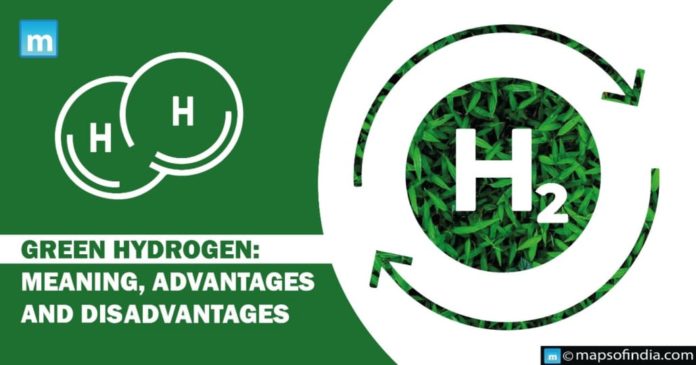The talk of clean energy is spreading like Wildfire worldwide. Every country in the world is trying to find an alternative to fossil fuels as global prices soar every day. Several countries are already working on big solar and wind energy projects. There is another alternative available on which only a few are working: the Green Hydrogen.
This technology can help decarbonize the Earth faster and help in bringing down the temperature of the planet significantly. According to the report last year, a chapter of a comprehensive review of climate science, the Intergovernmental Panel on Climate Change warned about unprecedented warming occurring at both the poles of the planet. This year both the North pole and the South pole are facing Heatwaves.
With Antarctica in the South pole recording temperature 40 degrees Celsius above average, the Arctic in the south recording temperature 30 degrees Celsius above normal. Now is the time to understand the importance of switching to an alternate fuel.
What is Green Hydrogen?
Hydrogen is known to be the smallest element in the periodic table and is available easily. Whenever Hydrogen is in the making process, it always combines itself with the identical carbon-free molecule. Green Hydrogen is produced by breaking apart H2 and Oxygen while using electricity. This process is known as Electrolysis. Also, Green Hydrogen can be created without releasing harmful greenhouse gases and is known to be the clean Hydrogen.
Even though it is a colourless gas yet, it has numerous colour codes, i.e., because these are colour codes or nicknames given to the gas in various industries depending upon its use.
How many types of Hydrogen gases are there?
Besides green, there are several colour types of Hydrogen:
- Blue Hydrogen
- Grey Hydrogen
- Turquoise Hydrogen
Blue Hydrogen: It is mainly produced with the help of natural gas, using the process of steam reforming in which natural gas and heated water are combined, and the result is the formation of Blue Hydrogen. It is also known as the low-carbon Hydrogen.
Grey Hydrogen: It is known to be one of the most commonly found Hydrogen and is generated by mixing natural and methane using steam reforming. During this, there is an emission of black or brown Hydrogen, which is known to be environmentally damaging as both the CO2 and Carbon monoxide are generated and not captured.
Turquoise Hydrogen: It is new to the hydrogen colour codes and is created using methane pyrolysis to produce solid carbon, also known as carbon black. This by-product has many industrial uses, including car tires, batteries, plastic, and coating application.
Benefits of Green Hydrogen
Sustainable
- Green Hydrogen proves to be an exceptional alternative to traditional fossil fuels and can be used as fuel cells. Presently, the fuel cell electric vehicles trend is going under a revolution. It is 100% sustainable and does not emit any polluting gas either during the process of Electrolysis or while being used.
Versatile
- Various large industrial sectors are dependent on non-renewable energy and emit a large amount of carbon dioxide into the atmosphere. Green Hydrogen can replace coal due to its high capacity to generate energy, and it can help bring down the power bill of the industry.
Storage
- One of the few other benefits of H2 is that you can either store the gas in liquid form or the gaseous form. It can be stored using fuel cell technology. Hydrogen has the highest energy per mass of any fuel, which means that the higher the energy density of a system, the greater the amount of energy you can store.
Disadvantages of Green Hydrogen
Safety Concerns
- Hydrogen is one of the most highly flammable and volatile substances. It is colourless and odourless, which makes any leak detection almost impossible.
Expensive
- The cost of hydrogen production compared to fossil fuels is more competitive, and the process of Electrolysis, which is used to make green Hydrogen, is more expensive than both Grey and Blue Hydrogen.
Difficulty in Transport
- Hydrogen is extremely light and has a low volumetric energy density, making it lighter than helium. At the same time is 2700 times less energy-dense than gasoline. Gasoline is easily transportable through pipelines and shipping containers. There is yet to be a solution found for Hydrogen on that front.





